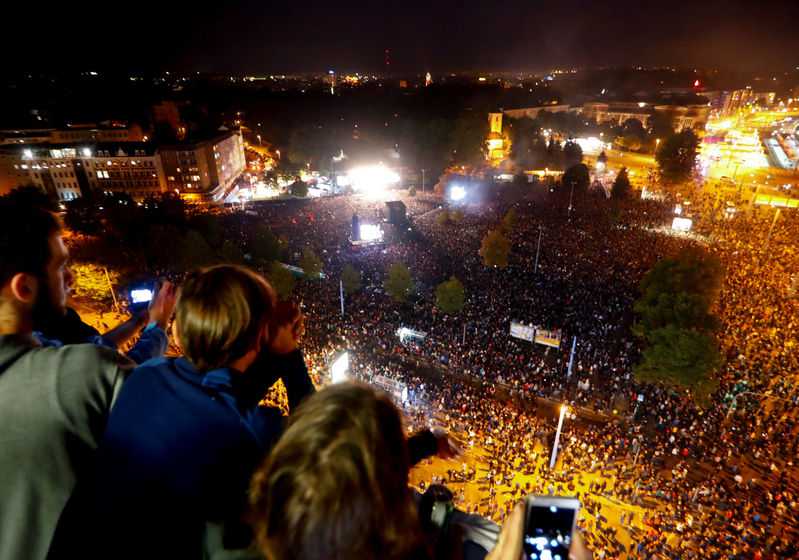Germany’s govt coalition split on monitoring far-right AfD
05 September, 2018

Differences emerged between Germany’s governing parties on Monday over how to respond to the Alternative for Germany’s (AfD) alleged ties to anti-Islamic and racist groups, as calls grew for the far-right party to be placed under surveillance.
About 6,000 supporters of the AfD and the anti-Islam PEGIDA group turned out to a series of protests in the eastern city of Chemnitz after a man was stabbed to death there last weekend, allegedly by two immigrants.
Skinheads clashed with police soon after a Syrian and an Iraqi were identified as the main suspects, and a number of xenophobic attacks were reported, exposing bitter divisions over Chancellor Angela Merkel’s liberal immigration policy.
On Monday, the states of Lower Saxony and Bremen said their regional security services, tasked with policing unconstitutional activity, had placed their respective regional chapters of Young Alternative, the largest opposition party’s youth wing, under surveillance because of its suspected ties.
But with pressure from politicians and activists to extend that surveillance to the national party, conservative Chancellor Merkel declined to enter the fray directly, saying it was for the security services themselves to decide whom to monitor.
“These aren’t political decisions, but decisions that are based on facts,” she told reporters after a summit of business leaders and labor unions, attended also by Olaf Scholz, her Social Democrat finance minister.
Scholz said he agreed on the principle, but added at the same news conference that the clashes in Chemnitz gave clear cause for a renewed look at whether the AfD, which entered parliament for the first time last year, should be monitored.
Germany’s Constitution contains strict safeguards against extremism, allowing for the close monitoring and even the proscribing of extremist parties.
Intelligence agencies monitor the far left and far right as well as Islamists suspected of planning attacks.
Memories of Nazi and Communist oppression have made Germans very cautious about state surveillance, but a poll on Monday found that 57 percent agreed that the AfD should be monitored.
“The country has clearly gone mad,” said Joerg Meuthen, the AfD’s chairman, saying that far-left rock bands should be monitored for extremist tendencies.
A group of left-leaning rock groups gave a free concert “against xenophobia” in Chemnitz on Monday evening, inadvertently highlighting splits between Germany’s mainstream left and right.
German President Frank-Walter Steinmeier, formally politically neutral but originally a Social Democrat, shared the invitation to the concert on his Facebook page, drawing criticism from Merkel’s party.
Annegret Kramp-Karrenbauer, general secretary of Merkel’s Christian Democrats, said one of the bands, named Fine Cream Fish Fillet, called for violence against the police in some of its lyrics. Earlier presidents “would not have supported the band so uncritically,” she said.
Federal Interior Minister Horst Seehofer and his Bavarian CSU party say the conditions have not been met to monitor the AfD as a whole, but they will keep an eye on developments and individuals.
Support for the AfD, which won nearly 13 percent in last year’s federal election, rose 2 percentage points to 16 percent in an RTL opinion poll after the events in Chemnitz.
Critics have faulted the party for not expelling Bjoern Hoecke, an AfD leader from the state of Thuringia who has criticized a memorial to victims of the Nazi Holocaust as a “monument of shame” and helped organize Saturday’s march.
